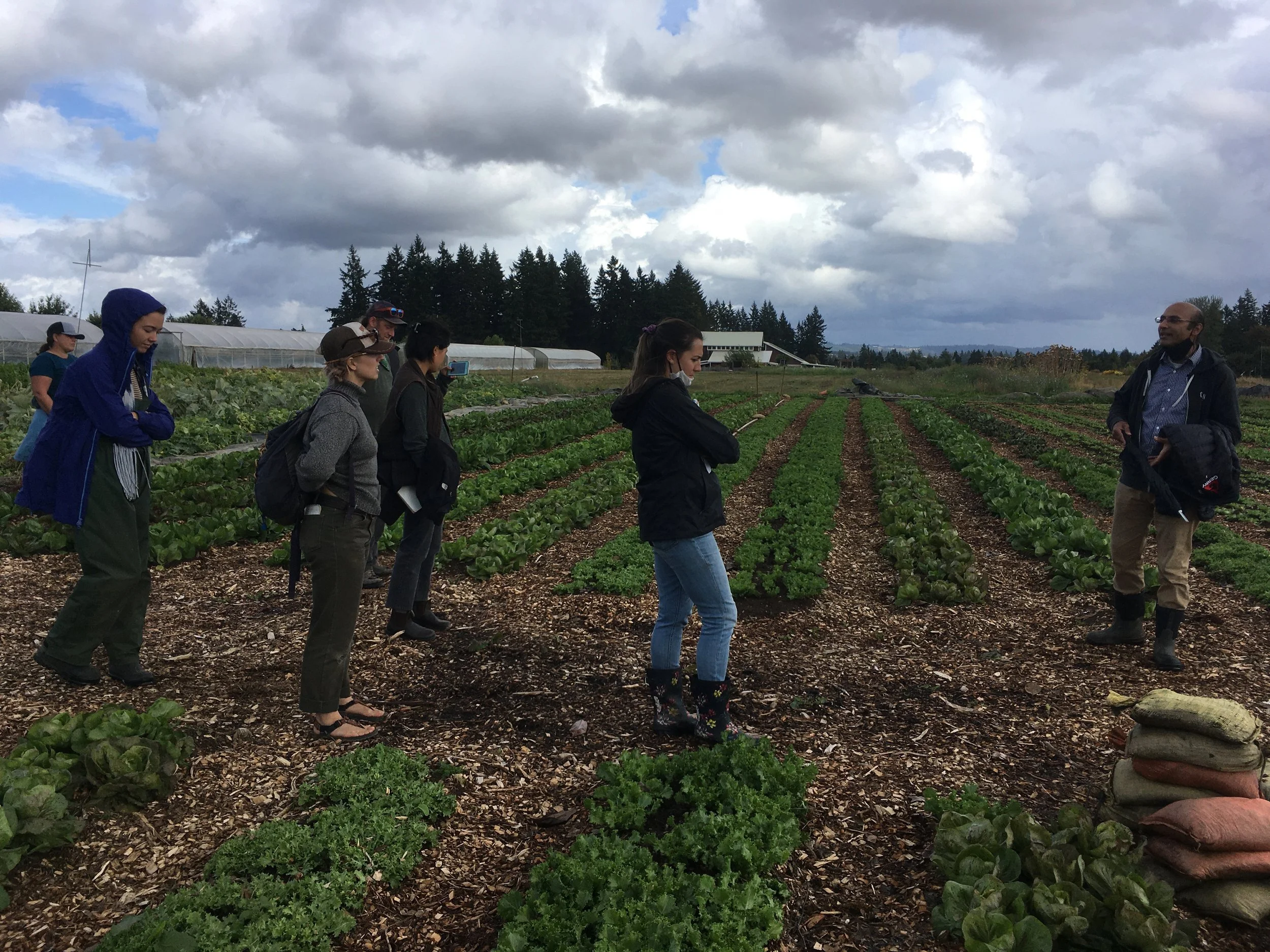Farm Incubator
Farm incubators are land access and business incubator programs. Incubators offer different services to their farmers, including but not limited to leased farmland, shared equipment, business mentorship, and marketing assistance. Most incubators are nonprofits, but some are housed by local government agencies or schools.
The level of collaboration between farmers at a farm incubator will vary from program to program. But by growing their businesses in close proximity, farmers often build relationships and identify ways in which collaboration can enhance their operations.
While farm incubators do not typically secure long-term land access for participants, some incubators are looking for creative ways to incorporate land security into their programs. Such solutions might include long-term land sharing between incubator participants.
Nonprofits or other organizations looking to cultivate collaborative farming amongst farmers in their area might consider an incubator as one strategy. Farmers operating in community might build strong relationships, and incubators could transition the property and infrastructure to its farmers via a cooperative or collective structure upon graduation. This is just one option of many creative ways the incubator model could be used to support collaborative farming ventures.
Case Study: Viva Farms
Photo courtesy of King Conservation District
Viva Farms is an incubator operating over 100 acres in King and Skagit Counties in Washington state. Their programming has influenced over 1,000 farmers in the area, and they current incubate 29 farm businesses.
Because of the level of proximity involved in farming in an incubator, they report that many of their farmers engage in collaboration. Some share equipment, two run a collaborative CSA, and some farmers who met through their educational series now co-run farms together.
-
Lease Resources for Incubator Farms | via Farm Commons
Farm Commons is an excellent legal resource for farmers. This page includes an incubator farm lease toolbox. Can’t access something on their site you want to read? Shoot us an email!
National Incubator Training Farm Initiative Resource Library | via NESFP
The NIFTI library contains sample curricula, farmer leases and manuals, site management protocols, and more.
Join the FIELD Network | via NESFP
The FIELD network is a nationwide network of ag training programs including incubator farms. They host a listserv, hold an annual conference, and produce resources for land-based training programs.
-
Map of Farm Incubators| via FIELD Network
A five-year incubator located in OR, hosted by the Multnomah Soil and Water Conservation District.
A four-year incubator program in CA hosted by the ALBA nonprofit.
A 42-acre incubator in PA hosted by Second Harvest Food Bank.
A NY based farm incubator offering ¼ acre plots to new farmers.


